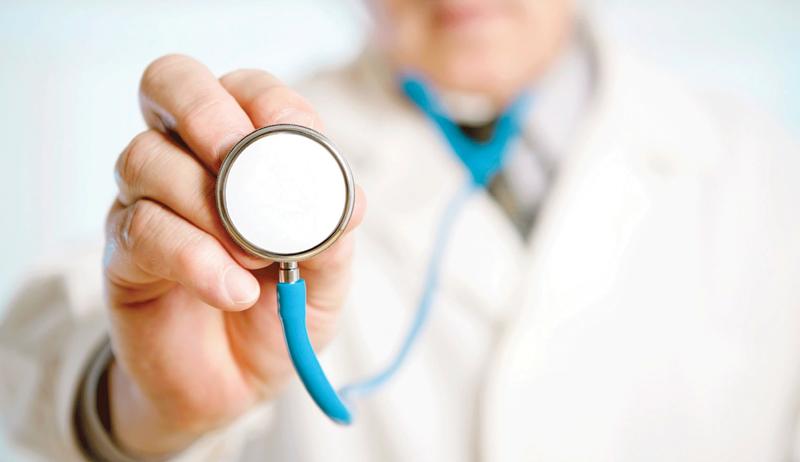
Specialist doctors last Monday threatened to withdraw from private practice, if the government continued to impose what they claimed were high taxes on their income through private medical practice, as part of a PAYE (pay as you earn) tax scheme introduced by the Finance Ministry under its new Inland Revenue Act which came into effect from April 1, 2018 .
According to experts at the Ministry of Finance, the Act is aimed at reducing the portion of indirect taxes which in Sri Lanka stands at 84% , an exceptionally high level compared to other countries. This means that of all the tax revenue collected in the country only 16 % is collected from high earning individuals or business entities that pay direct taxes. The vast majority of revenue is collected through taxes on goods and services used by all citizens.
The specialist doctors have suspended their protest-action, earlier scheduled for Monday June 18, until a meeting with the President or the Prime Minister which they hope might take place this week. “Depending on the outcome of this meeting we will decide a further course of action,” Association of Medical Specialists (AMS), President, Dr. Sunil Wijayasinghe said.
The AMS have expressed desire to meet the Head of State or the Prime Minister to discuss the situation and seek their intervention to revoke the Special Tax Bracket under which their private practice income has been given business status by the Finance Ministry’s new tax regime. This classification according to the AMS has slapped a new upper tax ceiling of 24% on specialist doctors’ private income revising the earlier limit of 12%. “Our income used to be under the professional income category where the upper tax ceiling was only 12% Dr. Wijayasinghe said.
“The Finance Minister Mangala Samaraweera and Health Minister Rajitha Senaratne agreed that the concerns raised by us were, in fact, valid. But the Finance Minister requested to bear with the Government for one year until they can recover from the dire financial situation that it was currently in. Yet, we think it is not a reasonable request to let the Finance Ministry categorise private practice of medical specialists as a business venture even for one year,” he added.
The specialist doctors met the Finance Minister in the presence of the Health Minister on Monday (June 11) to discuss the matter and come up with an acceptable solution. They have pointed out that they were ready to be governed by the pre-April 1 tax regime where they will be paying only up to 12% PAYE tax.
According to Health Ministry statistics quoted by the AMS, there are 1700 specialist doctors in state hospitals. Counting the doctors in private hospitals this number goes up to 2050.
Dr.Wijayasinghe said the Medical Specialists’ Collective comprising Association of Medical Specialists, Specialists represented in the GMOA,University Medical Specialists and Private Sector Medical Specialists have joined forces in their agitation.
Meanwhile the Finance Ministry reiterated that doctors’ state service income will not be subject to the 24% tax, and that it is only their private practice that will be covered by the above tax ceiling and that all private income earners had to bear a similar PAYE tax in any country. With regard to PAYE tax the state sector income of doctors will be subject to a ceiling of 12%.
The Finance Ministry says that specialists doctors who are engaging in private practice will have to contribute to PAYE tax with a ceiling of 24%, just like any other profitable business.
“In addition to these taxes, the doctors are entitled to a duty free vehicle permit every five years. The value of each duty free permit is up to Rs.36 million and a doctor would on average be entitled to at least six such permits up to the age of retirement at 60 years. In addition, if the doctors are appointed to an administrative position, the duty free concession will be raised in millions,” the Finance Ministry said in a statement.
Reputed Sociologist Prof. Siri Hettige noted that in other countries with greater social welfare systems such as free education and free healthcare, citizens pay as much as 50% of their income as taxes.
He further said “not just the private medical sector but the private tuition sector, the international schools and many other areas need to be reined in,” adding that the present Finance Minister was trying to bring in some legitimacy to the state taxing system, yet he is struggling alone.
